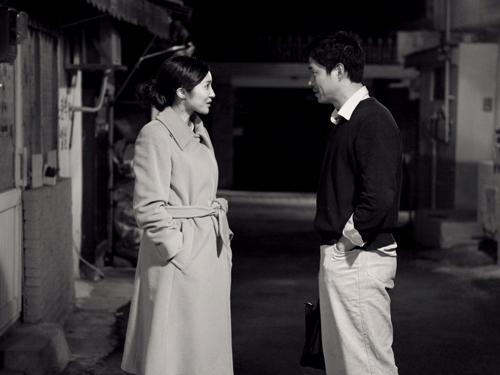
In The Day He Arrives, a soju-fueled cross between Last Year at Marienbad and Groundhog Day, Yoo Seongjun, a lapsed director self-exiled to the provinces, roams the streets and bars of Seoul much as X wanders the hallways and gardens of Marienbad, through an endless repetition of settings, characters, and incidents, each reiteration calling previous accounts into question. “I don’t remember a thing,” the bar owner Ye-jeon insists after Seongjun apologizes for what something he has just done, her protestation recalling A’s many disavowals of the past in Marienbad. Whose version does one trust: his, hers, neither?